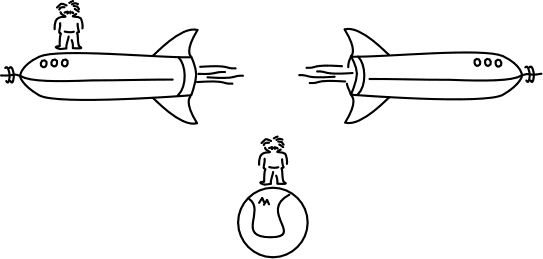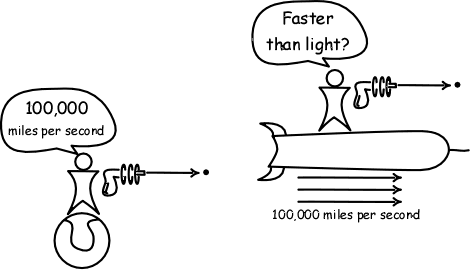
| HPS 0410 | Einstein for Everyone | Fall 2018 |
Back to main course page
For submission
1. Two spaceships pass a planet, moving in opposite directions. A planet observer judges each to be moving at 100,000 miles per second. An observer on one of the spaceships measures the speed of the other spaceship.

(a) According to classical physics, what speed will that spaceship observer measure for the other spaceship? Is this speed faster than light?
(b) According to relativity theory, what speed will that spaceship
observer
measure for the other spaceship? Is this speed faster than light?
2. The planet observer of question 1. above watches the first spaceship observer measure the speed of the second spaceship by means of a procedure that uses rods and clocks. Would the planet observer judge that measuring procedure to be a fair one that gives the correct result?
For discussion in the recitation.
A. Imagine that you have a gun that can fire a particle at 100,000 miles per second. You are in a spaceship moving at 100,000 miles per second with respect to the earth. You point the gun in the direction of your motion and fire. Would an earthbound observer judge the particle to travel at 200,000=100,000+100,000 miles per second? Show that the earthbound observer could not since that would violate the principle of relativity, when that principle is combined with the light postulate. How rapidly would you (the spaceship observer) judge the particle to be moving?

B. The arguments we have investigated show that relativity theory prohibits us accelerating an object past the speed of light. Do any of them rule out objects that have always been traveling faster than light (or, possibly, were created initially already moving faster than light)?